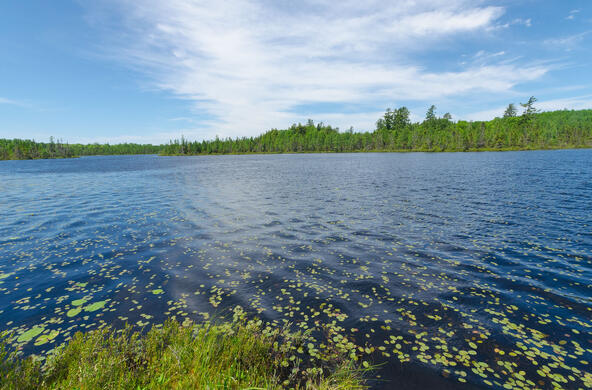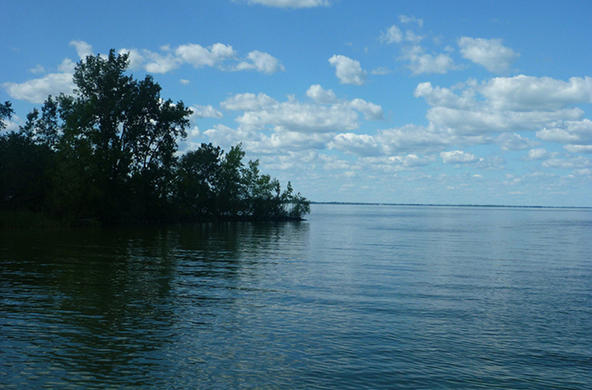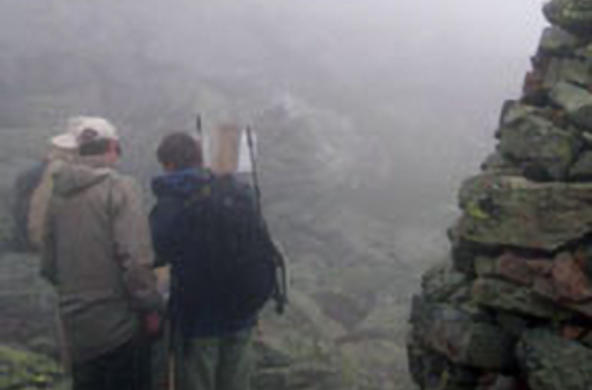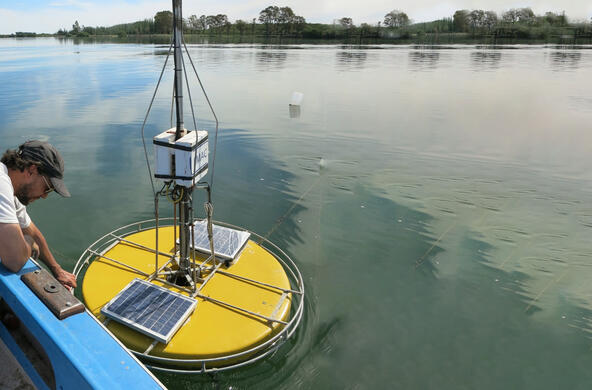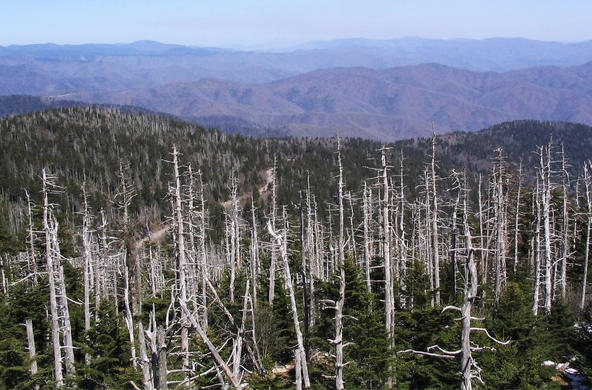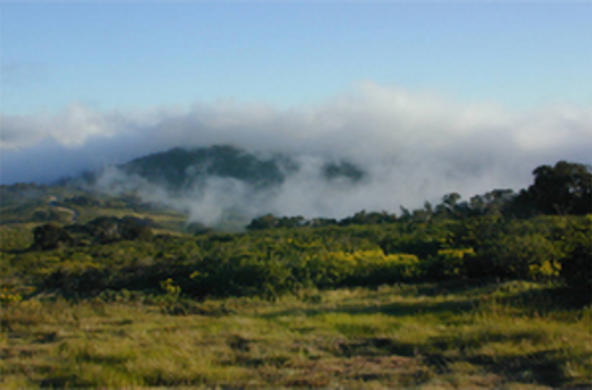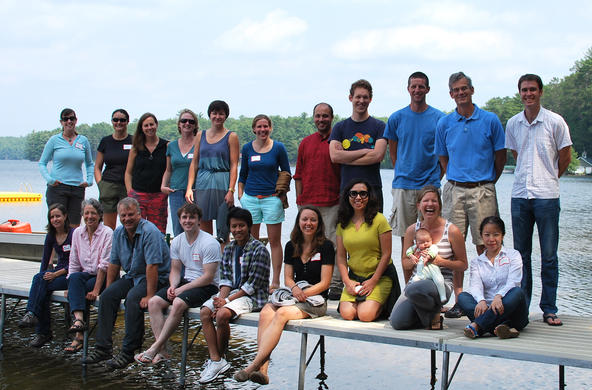- Profile
- Videos & Podcasts
- Publications
Kathleen Weathers studies how ecosystem processes are affected by global changes within and among aquatic, airborne, and terrestrial systems.
Weathers is an expert on fog, which carries not only water, but nutrients, pollutants, and pathogens to the coastal and montane ecosystems it enshrouds. She studies feedbacks among ocean, air, and fog- dominated forests and, recently, how fog may affect transfer of pathogens from water to land.
As part of a long-term collaboration with Alexandra Ponette-González (University of Utah), students, and colleagues, Weathers is studying the effects of mineral dust and black carbon. Mineral dust can deliver toxic pollutants to ecosystems and is a growing concern as climate change exacerbates drought. Black carbon is known to cause lung and heart disease. This collaborative team is studying the role of vegetation in abating black carbon in urban areas.
From cyanobacteria to cyberinfrastructure, Weathers has spent the last two decades studying the impact of climate change on lakes. She was co-chair of the Global Lake Ecological Observatory Network (GLEON) for 10 years, guiding GLEON from its infancy to adulthood. The GLEON network’s aim: Through international team science, understand, predict, and communicate lakes’ response to environmental change using in-situ and remotely sensed data. This work encompasses impacts from human activities, including climate change, road salting, and land use.
Weathers and her colleagues have created a new model for interdisciplinary, network research that empowers early career scientists. The GLEON Fellowship Program/Lake Expeditions, designed and led by Weathers and Paul C. Hanson of UWisconsin, engages student cohorts in learning and using leadership and collaborative skills (a.k.a., team science) as well as cutting-edge analytical tools — such as machine learning — to answer pressing research questions focused on lakes. To date, five cohorts and more than 50 graduate students have been trained through this ‘career- and life-changing’ fellowship program.


